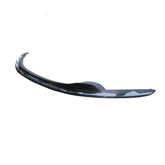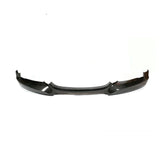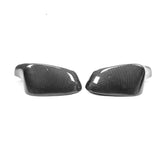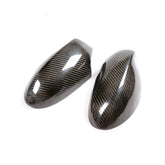Introduction
BMW M has long stood as a benchmark for high-performance vehicles, combining cutting-edge technology, dynamic design, and thrilling driving experiences. As we move further into the 21st century, the automotive landscape is rapidly evolving with shifts towards electrification, digitalization, and sustainable mobility. This article explores what the future holds for BMW M Power, focusing on potential developments in drivetrain technologies, design innovations, and new performance standards.
1. Electrification of BMW M
Hybrid and Electric Models
- Trend: As part of BMW's broader strategy to electrify its lineup, future M models will likely include both hybrid and fully electric options. BMW's i4 M50, the first all-electric M model, marks the beginning of this transition.
- Benefits: Electrification can enhance performance by providing instant torque, improved acceleration, and lower center of gravity thanks to battery placement.
Performance Optimization
- Technology: Future electric M models may feature advanced battery technologies and electric motors that focus on enhancing the driving experience without compromising on performance. Expect innovations such as torque vectoring and improved energy recovery systems.
2. Advancements in Autonomous Technologies
Semi-Autonomous Driving Features
- Integration: While BMW M models emphasize driver control and engagement, the integration of advanced semi-autonomous technologies can enhance safety and comfort, particularly in urban and traffic-dense environments.
- Features: These may include enhanced autopilot capabilities for highway driving, advanced collision avoidance systems, and adaptive navigation systems that learn from the driver's habits.
-

3. Lightweight Construction Techniques
Materials Innovation
- Carbon Fiber and Composites: The future of BMW M will continue to see the use of lightweight materials that reduce weight while increasing strength and safety. Innovations in carbon fiber and composite materials will play a significant role.
- Mixed-material Construction: Use of aluminum, titanium, and high-strength steel in combination with carbon fiber could become more prevalent to achieve optimal weight and performance balance.
4. Focus on Sustainability
Eco-friendly Materials
- Interior: The use of recycled and sustainable materials within the cabin, such as recycled plastics, bio-based fibers, and leather alternatives, will align with global sustainability trends.
- Production: BMW may increase the use of renewable energy in the manufacturing of M models and adopt more environmentally friendly production processes.
Reducing Emissions
- Technologies: Beyond electrification, BMW M might incorporate advanced combustion technologies, hybrid configurations, and synthetic fuels to reduce emissions without sacrificing power.
5. Design and Customization
Futuristic Design Elements
- Aesthetics: As technology advances, so too will the aesthetic elements of BMW M models. Expect more daring designs with aerodynamic efficiency, digital interfaces, and adaptive exterior features that change based on driving conditions.
- Personalization: BMW might expand options for customization, allowing owners to tailor various aspects of their vehicles through digital technologies and modular design elements.
6. Performance Meets Digital Integration
Enhanced Connectivity
- Digital Services: Future M models will likely offer more integrated digital services, connecting the car with other devices and the environment. This could include real-time traffic updates, weather-adaptive performance adjustments, and predictive maintenance alerts.
- Performance Tracking: For enthusiasts, BMW could enhance systems that track driving patterns, offer real-time coaching, and even simulate driving scenarios to improve skills.
-

Conclusion
The future of BMW M Power looks to be an exciting fusion of tradition and innovation. As BMW navigates the challenges and opportunities presented by new technologies and shifting market demands, the essence of M—ultimate performance and driving pleasure—will undoubtedly remain central, even as the vehicles themselves become more connected, electrified, and sustainable. The transition towards these futures promises to make the next generation of BMW M models some of the most dynamic and exciting vehicles on the road.










